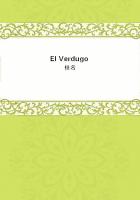IN THE WILDS
"All aboard! Step lively now! This boat makes no stops this side of Boston!" cried Ned Newton gaily, as he got into one of the several tree canoes provided for the transportation of the party up the Chamelecon river, for the first stage of their journey into the wilds of Honduras."All aboard! This reminds me of my old camping days, Tom."It brought those days back, in a measure, to Tom also.For there were a number of canoes filled with the goods of the party, while the members themselves occupied a larger one with their personal baggage.Strong, half-naked Indian paddlers were in charge of the canoes which were of sturdy construction and light draft, since the river, like most tropical streams, was of uncertain depths, choked here and there with sand bars or tropical growths.
Finding that Val Jacinto was regularly engaged in the business of taking explorers and mine prospectors into the interior, Professor Bumper had engaged the man.He seemed to be efficient.At the promised time he had the canoes and paddlers on hand and the goods safely stowed away while one big craft was fitted up as comfortably as possible for the men of the party.
As Ned remarked, it did look like a camping party, for in the canoes were tents, cooking utensils and, most important, mosquito canopies of heavy netting.
The insect pests of Honduras, as in all tropical countries, are annoying and dangerous.Therefore it was imperative to sleep under mosquito netting.
On the advice of Val Jacinto, who was to accompany them, the travelers were to go up the river about fifty miles.This was as far as it would be convenient to use the canoes, the guide told Tom and his friends, and from there on the trip to the Copan valley would be made on the backs of mules, which would carry most of the baggage and equipment.The heavier portions would be transported in ox-carts.
As Professor Bumper expected to do considerable excavating in orderto locate the buried city, or cities, as the case might be, he had to contract for a number of Indian diggers and laborers.These could be hired in Copan, it was said.
The plan, therefore, was to travel by canoes during the less heated parts of the day, and tie up at night, ****** camp on shore in the net- protected tents.As for the Indians, they did not seem to mind the bites of the insects.They sometimes made a smudge fire, Val Jacinto had said, but that was all.
"Well, we haven't seen anything of Beecher and his friends," remarked the young inventor as they were about to start.
"No, he doesn't seem to have arrived," agreed Professor Bumper."We'll get ahead of him, and so much the better.
"Well, are we all ready to start?" he continued, as he looked over the little flotilla which carried his party and his goods.
"The sooner the better!" cried Tom, and Ned fancied his chum was unusually eager.
"I guess he wants to make good before Beecher gets the chance to show Mary Nestor what he can do," thought Ned."Tom sure is after that idol of gold.""You may start, Senor Jacinto," said the professor, and the guide called something in Indian dialect to the rowers.Lines were cast off and the boats moved out into the stream under the influence of the sturdy paddlers."Well,thisisn'tsobad,"observedNed,ashemadehimselfcomfortable in his canoe."How about it, Tom?" "Oh, no.But this is only the beginning."A canopy had been arranged over their boat to keep off the scorching rays of the sun.The boat containing the exploring party and Val Jacinto took the lead, the baggage craft following.At the place where it flowed into the bay on which Puerto Cortes was built, the stream was wide and deep.
The guide called something to the Indians, who increased their stroke."I tell them to pull hard and that at the end of the day's journey theywill have much rest and refreshment," he translated to Professor Bumper and the others.
"Bless my ham sandwich, but they'll need plenty of some sort of refreshment," said Mr.Damon, with a sigh."I never knew it to be so hot.""Don't complain yet," advised Tom, with a laugh."The worst is yet to come."It really was not unpleasant traveling, aside from the heat.And they had expected that, coming as they had to a tropical land.But, as Tom said, what lay before them might be worse.
In a little while they had left behind them all signs of civilization.The river narrowed and flowed sluggishly between the banks which were luxuriant with tropical growth.Now and then some lonely Indian hut could be seen, and occasionally a craft propelled by a man who was trying to gain a meager living from the rubber forest which hemmed in the stream on either side.
As the canoe containing the men was paddled along, there floated down beside it what seemed to be a big, rough log.












